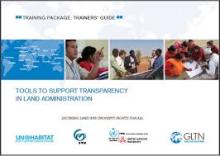Land Library
Welcome to the Land Portal Library. Explore our vast collection of open-access resources (over 74,000) including reports, journal articles, research papers, peer-reviewed publications, legal documents, videos and much more.
/ library resources
Showing items 1 through 9 of 39.Residential land in Rwanda is scarce due to hilly terrain, a high population and a focus on agricultural growth to address food security concerns.
Rwanda has nearly 280,000 hectares of wetlands, almost 11% of the country’s total
area.1 These wetlands provide critical habitats for wildlife and biodiversity, maintain
important hydrologic processes that help to clean and protect ground and surface
Across equatorial and east Africa, climate change is affecting the frequency, intensity
and variability of regional climate patterns.1 Changes in rainfall patterns, temperatures
and storm intensity are having significant effects on national economies, regional
The Land Use Consolidation Act (LUC) was introduced in 2008 and is an important
component of agricultural policy in Rwanda. As part of the Government of Rwanda’s
broader Crop Intensification Program (CIP), LUC entails participating farmers
In a context of globalization and liberalization, Africa is increasingly confronted with the commercialization of its space.
This trainer's guide is complementary to this training toolkit. It is part of an approach that aims to sensitize government agents about land administration, develop their capacity to address issues of corruption and to enhance transparency in the land sector.
In the complex soilscape of Rwanda, failure to tailor soil fertility management technologies to specific soil types is the major constraint to their adoption.
The study assessed the adoption of land use consolidation and its determinants in Nyanza District of Southern Province, Rwanda. Land use consolidation is part of the on-going crop intensification program led by the Ministry of Agriculture in Rwanda.
Food crop production in Rwanda is predominantly dependent on the productivity in small- and fragmented farms. Raising productivity levels in smallholder farms therefore represents a vital means to economic growth and poverty reduction in Rwanda.







